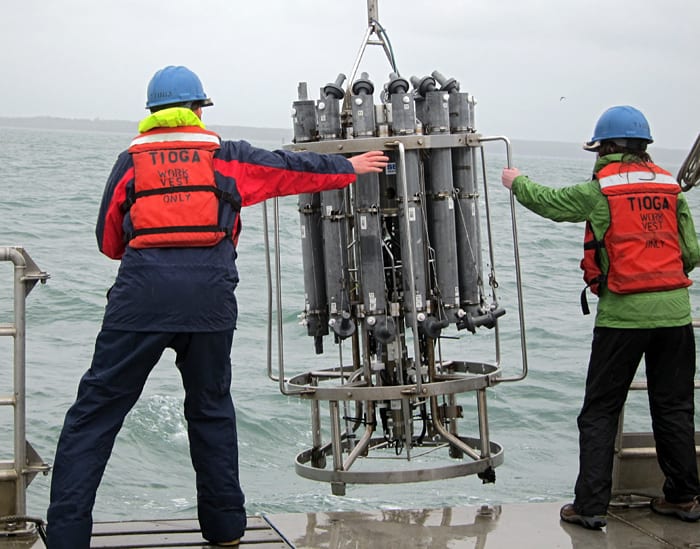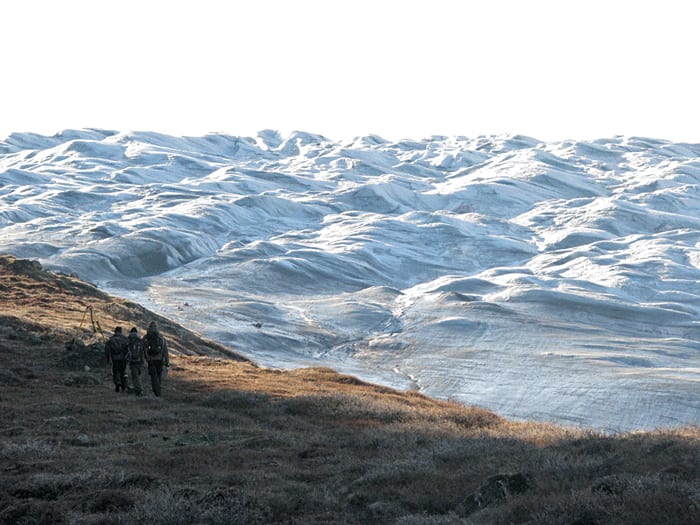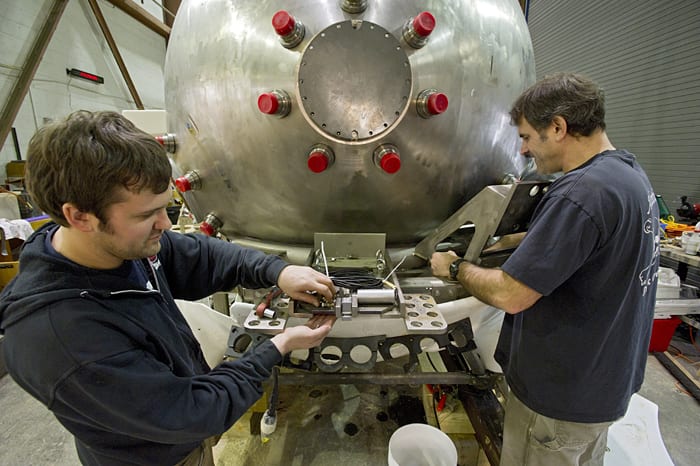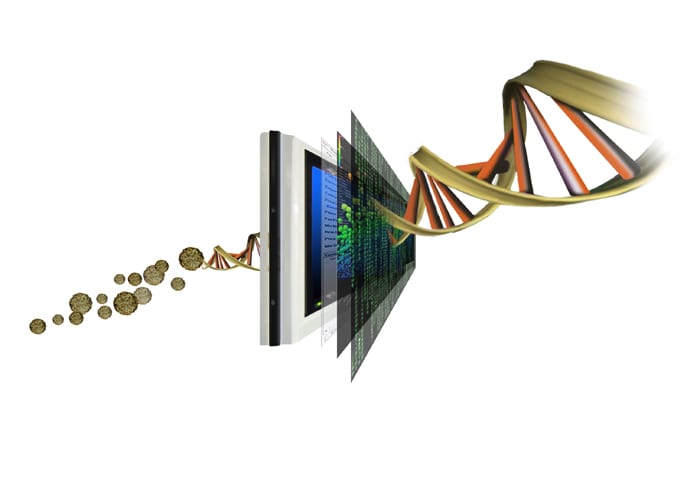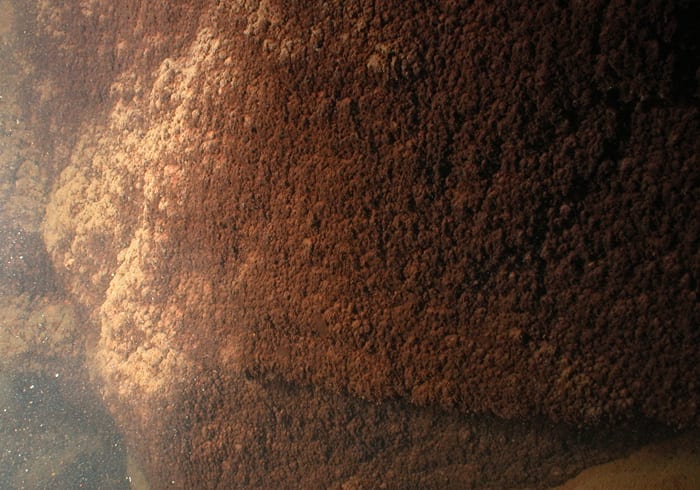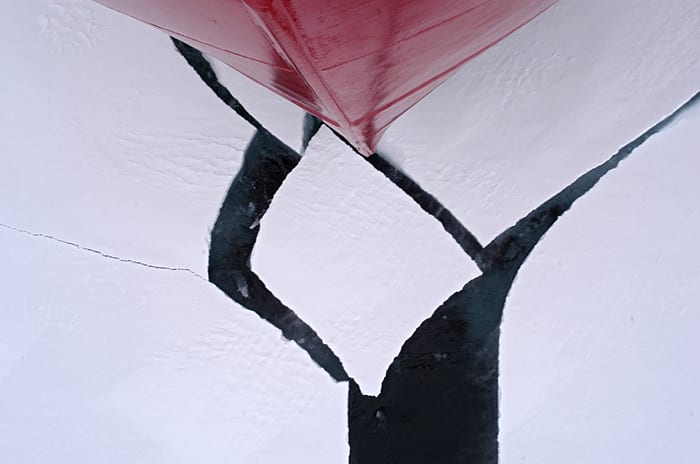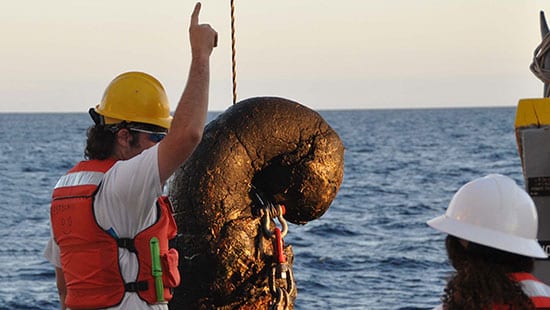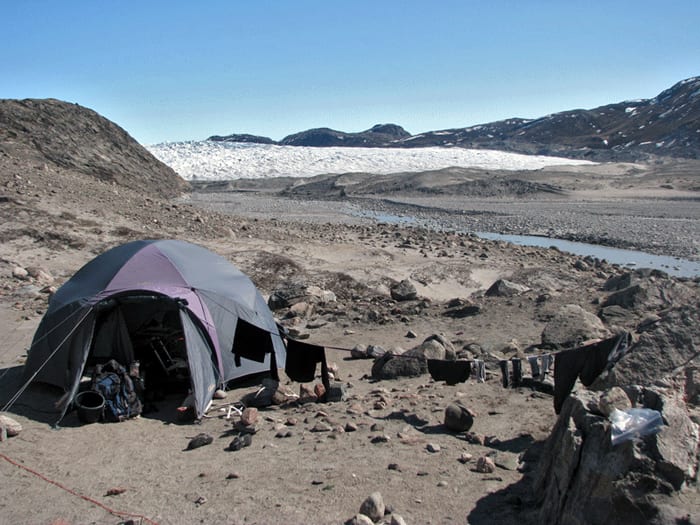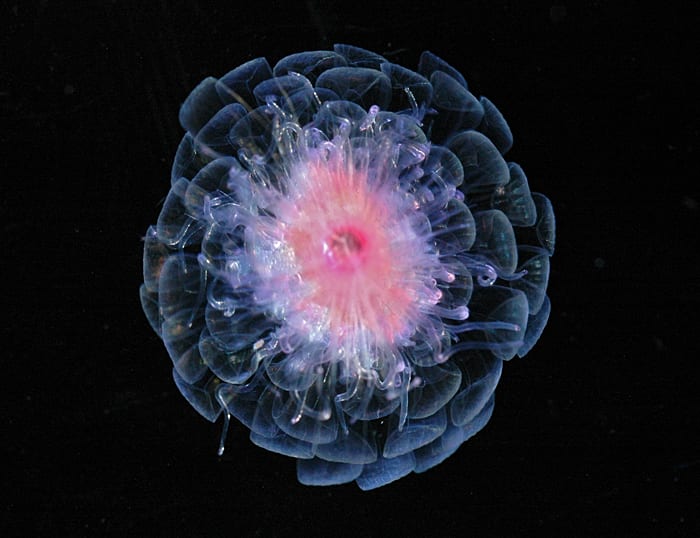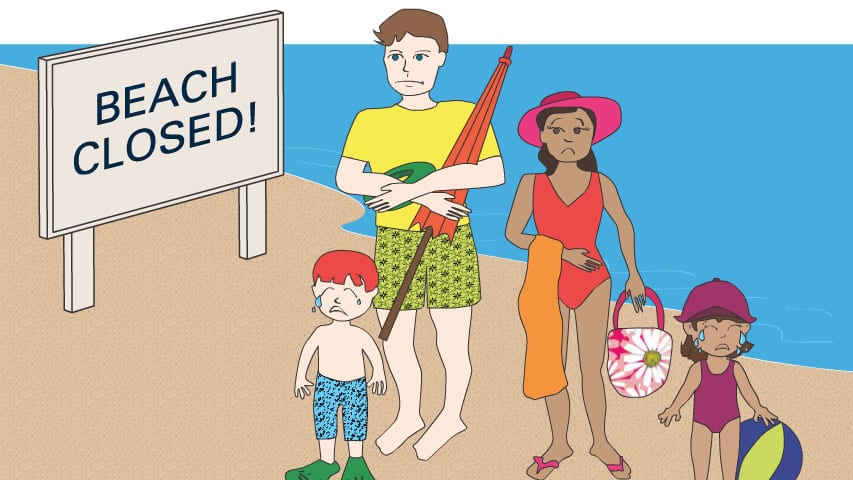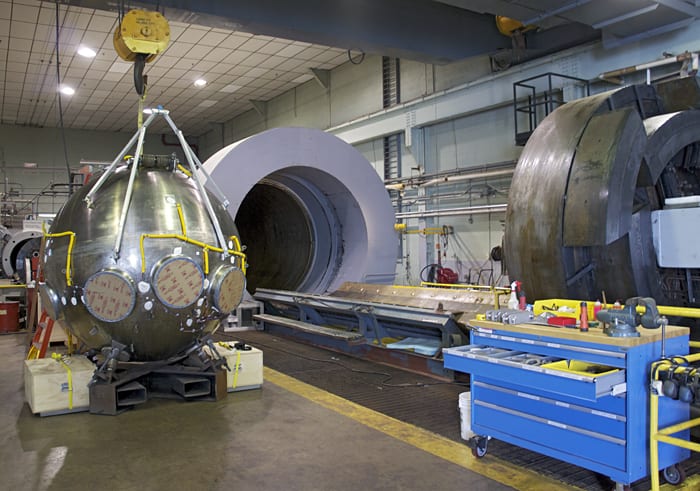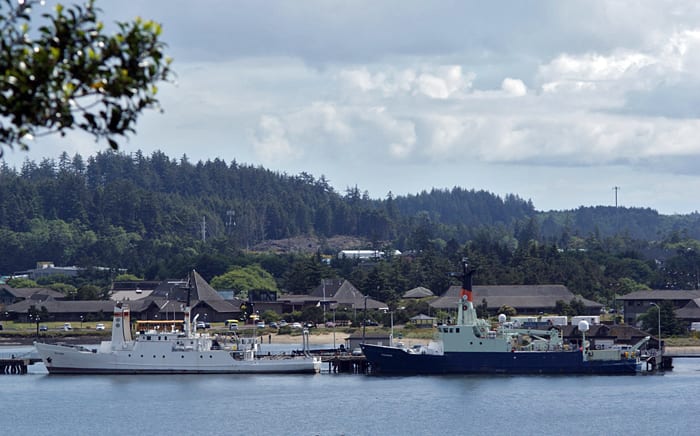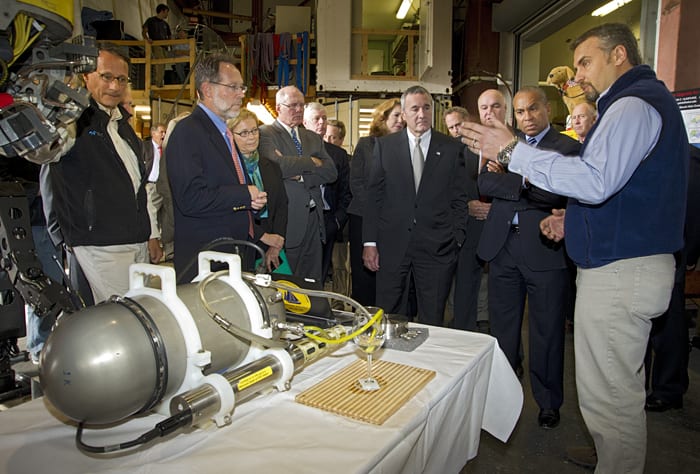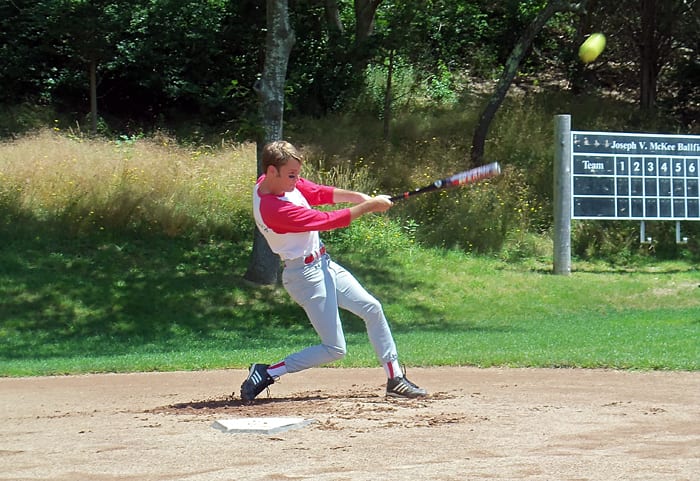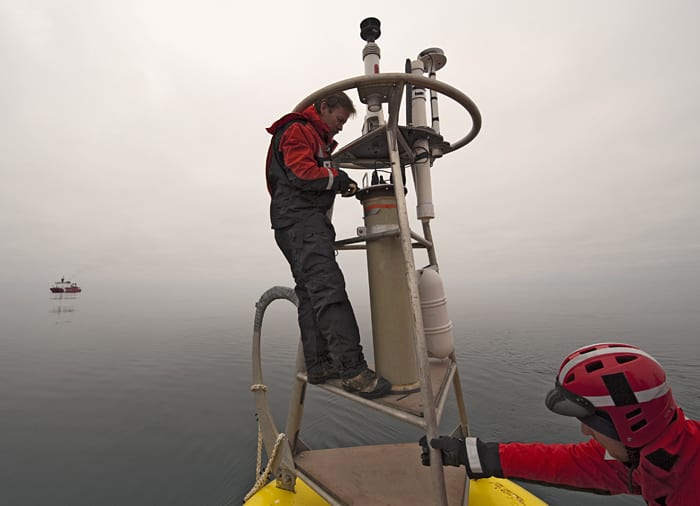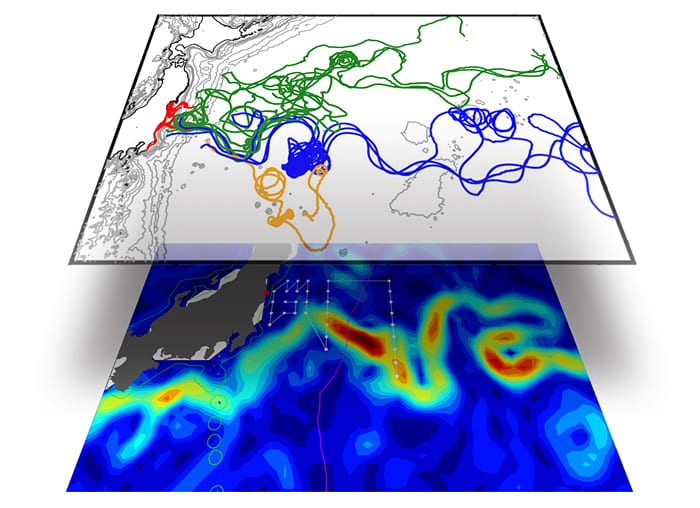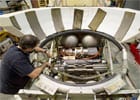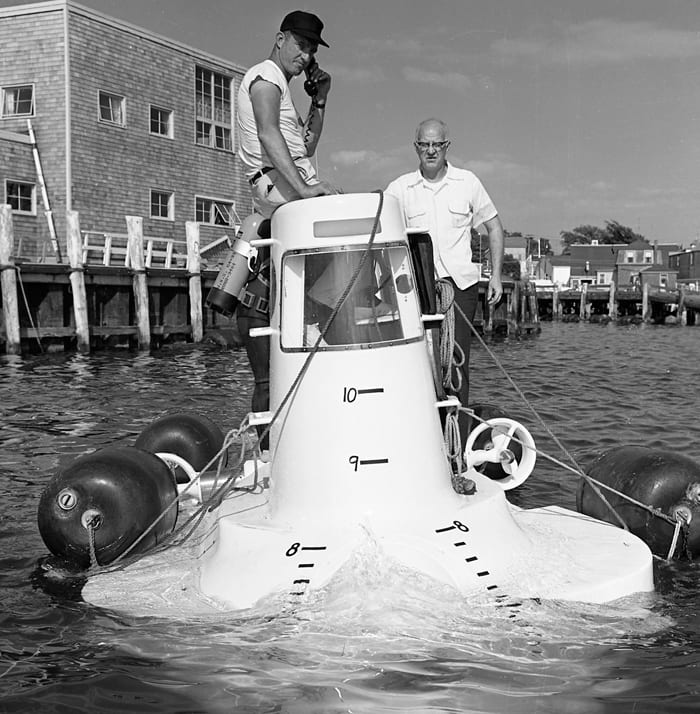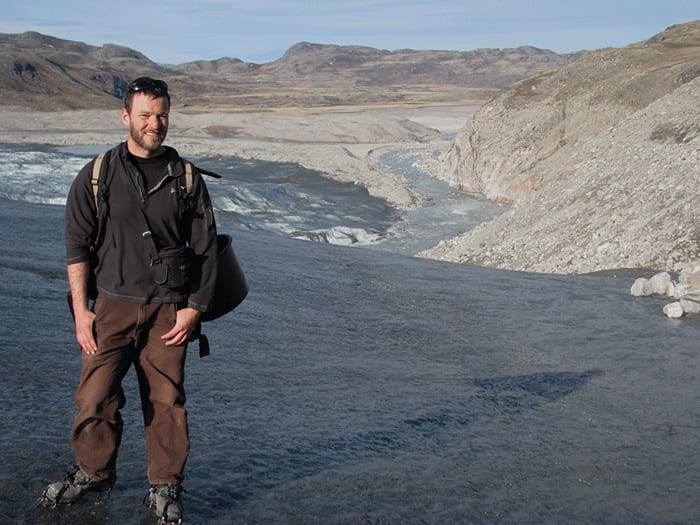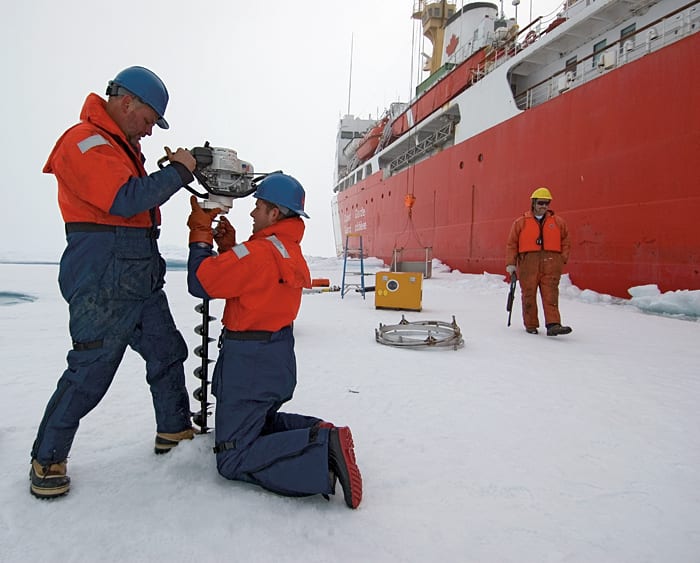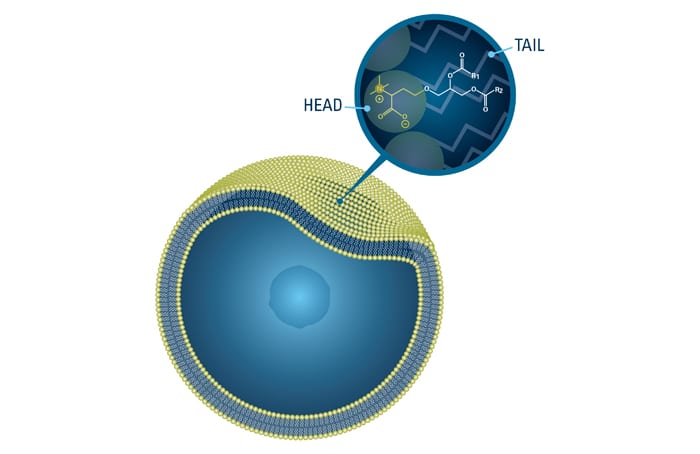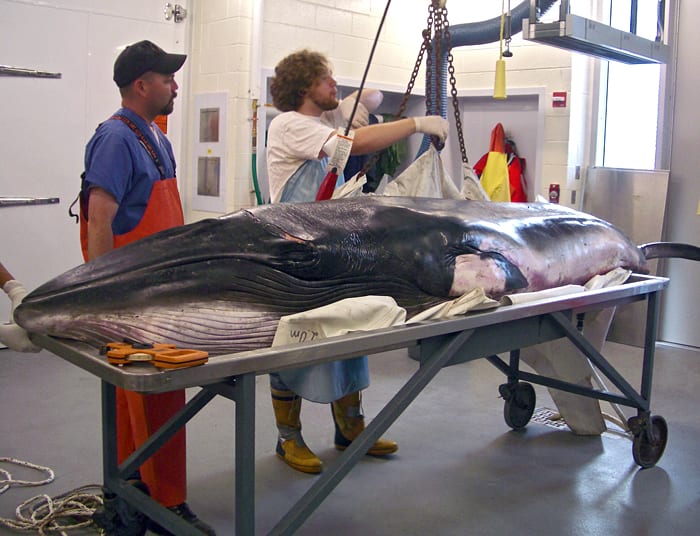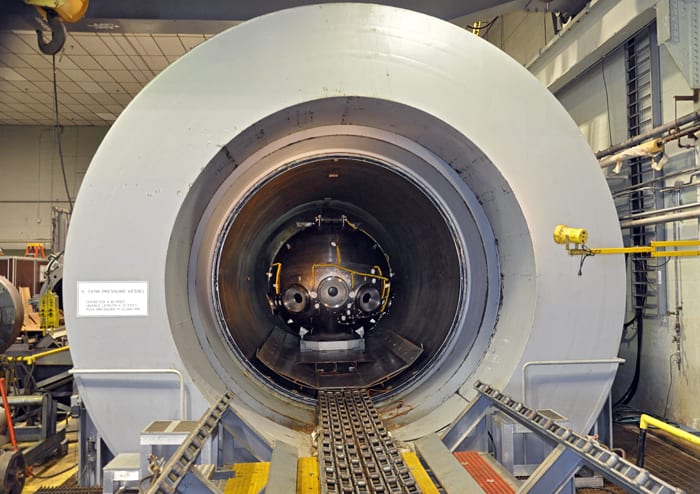Multimedia Items
Hands-on Lessons
Jesse McNichol (left) and Emily Moburg retrieve a rosette sampler to the deck of R/V Tioga during a recent cruise in Buzzards Bay. The two first-year MIT/WHOI Joint Program students…
Read MoreThe View from Greenland
A team of researchers that includes MIT/WHOI Joint Program graduate student Ben Linhoff, approached Leverett Glacier on the southwestern edge of the Greenland Ice Sheet. Linhoff and his colleagues are…
Read MoreNew and Improved
Nearly 18 months after Woods Hole Oceanographic Institution engineers Dave Walter (left) and Bruce Strickrott took the deep sea submersible Alvin apart, they are now beginning to put it back…
Read MoreTaking Apart Brown Tide Algae
In the summer, a single-celled marine algae species often causes “brown tides” in estuaries along the U.S. East Coast, killing seagrass, decimating shellfish, and costing local economies millions of dollars.…
Read MoreA Lost Glory, Found
An underwater camera and lighting system devised by WHOI scientist Dan Fornari recently revealed part of the long-lost Pink Terraces near the bottom of Lake Rotomahana, New Zealand. The Pink…
Read MoreBreaking the Ice
The U.S. Coast Guard Cutter Healy plows a path through ice in the Beaufort Sea. Evidence of Earth’s changing climate is especially visible in the Arctic, making it an important area…
Read MoreAnnual Phytoplankton Blooms in the North Atlantic
An animation based on a three-dimensional model simulation reveals the processes underlying the annual spring phytoplankton blooms in the North Atlantic. This model simulation by Amala Mahadevan (WHOI) is based…
Read MoreA Serendipitous Seafloor Sample
Roughing It, Greenland Style
Until early August, this is Ben Linhoff’s home in Greenland. Linhoff is a second-year graduate student in the MIT/WHOI Joint Program and is spending his second summer studying Leverett Glacier…
Read MoreBy the Siphonophore’s Red Glare
Happy Independence Day from WHOI and Athorybia rosacea, a siphonophore collected on a Census of Marine Zooplankton cruise off the U.S. East Coast. (Photo by Larry Madin, Woods Hole Oceanographic Institution)
Read MoreWhy is the Beach Closed?
Let Construction Begin
With the completion of a new personnel sphere, the submersible Alvin is on the way to becoming a stronger, roomier, and more capable research submersible. After two years of design, construction,…
Read MoreTwin Sisters
Despite some differences in appearance, these are actually sister ships. R/V Wecoma (left) and R/V Oceanus are both operated by Oregon State University on behalf of the University-National Oceanographic Laboratory…
Read MoreGovernor Patrick Visits WHOI
Last Fall, Massachusetts Governor Deval Patrick visited WHOI for the first time, touring several labs and learning about the Institution’s robotic vehicle development and ocean observing programs. Here WHOI Associate Scientist…
Read MorePower-hitting Microbiologist
Summer brings catching chemists, fielding physicists, and batting biologists—like Louie Wurch (here), to McKee Field at Woods Hole Oceanographic Institution to play in the long-running WHOI softball league. Since 2007,…
Read MoreOn a Clear Day
Technician Scott Hiller tends to a buoy in the Bering Sea during a 2009 Polar Discovery expedition. Buoys sit atop a long chain of instruments that monitor ocean conditions, and…
Read MorePacific Highway
An international scientific team led by WHOI marine chemist Ken Buesseler completed a research cruise in June 2011 to assess the levels and dispersion of radioactive substances from the Fukushima…
Read MoreRebuilding Alvin
The Original Alvin
A new titanium personnel sphere for the submersible Alvin passed pressure tests last week and is scheduled to arrive tomorrow in Woods Hole, where the newest incarnation of Alvin will…
Read MoreHappy Camper
In May, Ben Linhoff landed in Greenland, where he’ll remain until early August, camping and studying the ice sheet for his research on glaciers and chemical oceanography. It’s his second…
Read MoreDrilling Down
Every year since 2003, researchers have traveled to the Arctic north of Alaska aboard the Canadian icebreaker Louis S. St. Laurent for a month to study the Beaufort Gyre. In…
Read MoreHeads and Tails
The cell membranes of single-celled marine life are mostly made of fatty compounds called lipids. They have a distinctive structure with hydrophilic (water-loving) “heads” and hydrophobic (water-avoiding) “tails” and are…
Read MoreA Weighty Specimen
A minke whale that died and stranded on a beach is received at WHOI’s Marine Mammal Center , where research assistant Scott Cramer (left) and former WHOI employee Ben Carr…
Read MoreHigh-pressure Situation
The new personnel sphere for the re-designed submersible Alvin enters a pressure test chamber at a Northrop-Grumman facility in Annapolis, Md. The sphere began four days of simulated test dives on…
Read More
